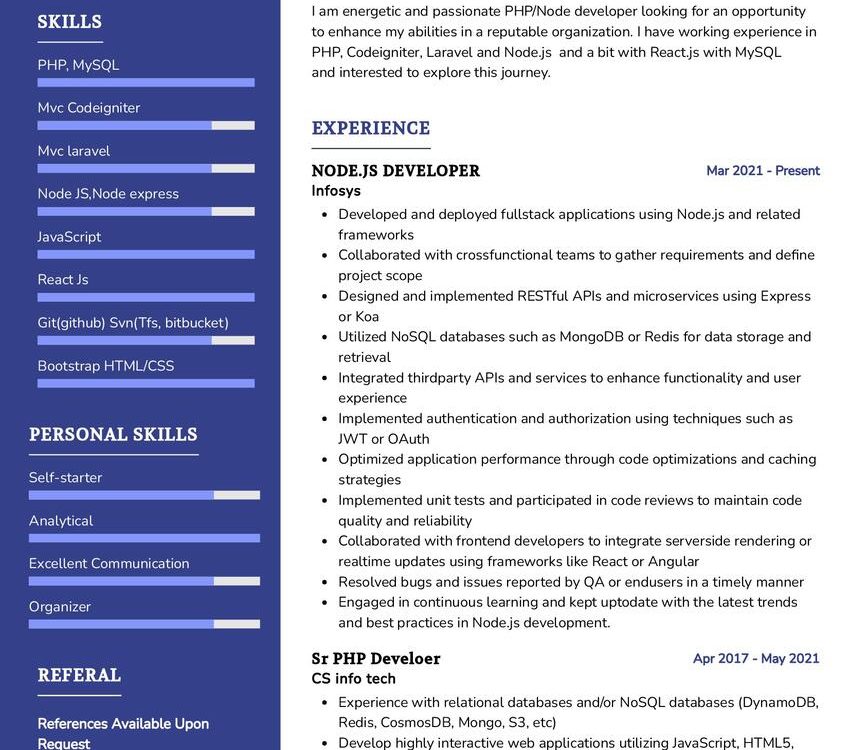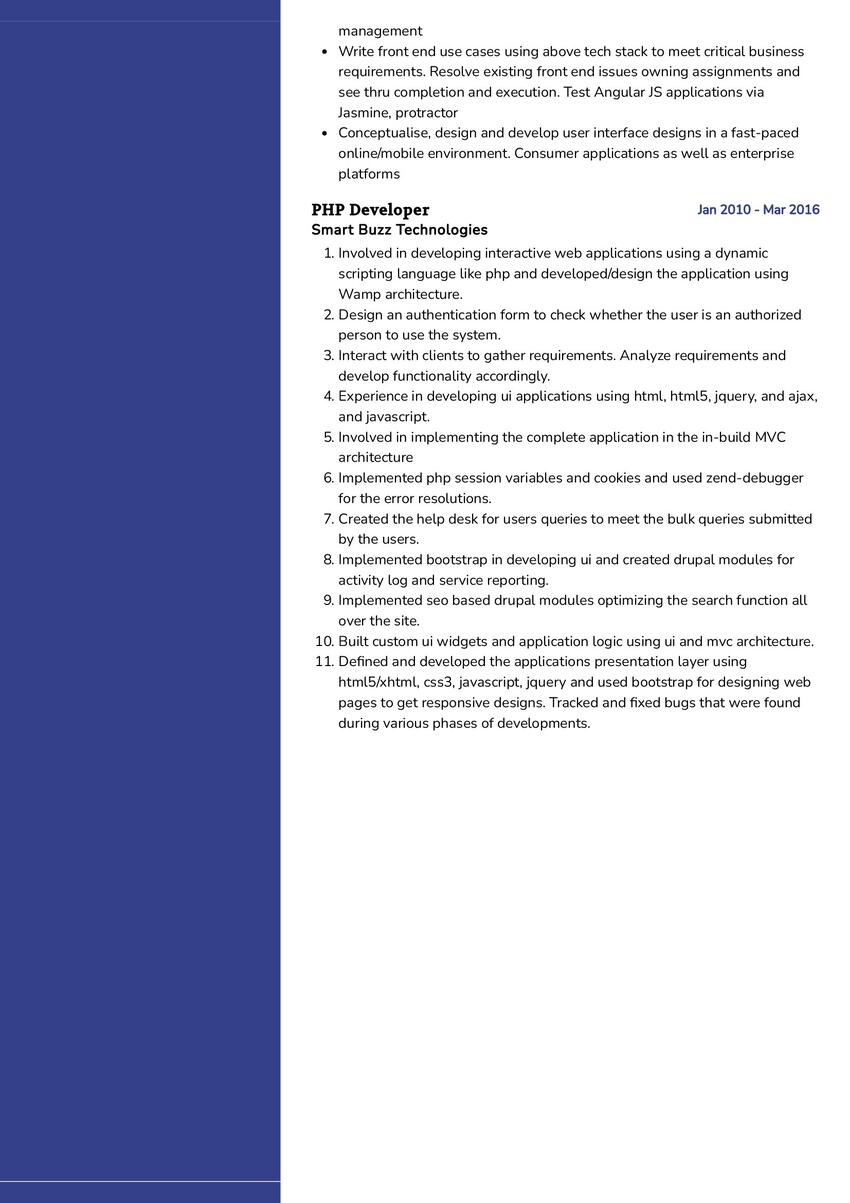Understanding the Role of a Node.js Developer
In the ever-evolving landscape of web development, the role of a Node.js Developer has become increasingly crucial. This position requires a unique blend of technical expertise and problem-solving skills, as Node.js is widely used for building scalable and high-performance applications. Let’s dive deeper into the multifaceted role of a Node.js Developer, exploring the technical intricacies and leadership qualities needed for success in this dynamic field.
Key Responsibilities of a Node.js Developer
A Node.js Developer is tasked with designing and implementing server-side applications, ensuring optimal performance and responsiveness. This involves collaborating with cross-functional teams, understanding project requirements, and delivering robust solutions. Let’s explore the key responsibilities that define the role of a Node.js Developer:
- Writing server-side code using Node.js to meet project requirements.
- Collaborating with front-end developers to integrate user-facing elements using server-side logic.
- Implementing data storage solutions and ensuring high-performance and responsiveness.
- Managing and optimizing databases, ensuring seamless data flow within applications.
- Conducting code reviews, identifying and fixing code errors and bottlenecks.
- Staying updated with industry trends and adopting best practices for Node.js development.
- Ensuring the security and data protection of applications.
Each responsibility plays a crucial role in shaping the developer’s expertise and contributes to the overall success of the projects they are involved in.
Node.js Developer Job Requirements
Becoming a Node.js Developer requires a combination of education, technical skills, and practical experience. Let’s break down the key requirements for aspiring Node.js Developers:
- A Bachelor’s or Master’s degree in Computer Science, Information Technology, or a related field, showcasing a solid foundation in programming and development.
- Proficiency in JavaScript and Node.js, with a deep understanding of asynchronous programming and event-driven architecture.
- Experience in developing RESTful APIs and a strong grasp of front-end technologies such as HTML, CSS, and client-side JavaScript.
- Familiarity with database systems, both SQL and NoSQL, and the ability to design efficient and scalable database schemas.
- Version control using tools like Git and experience with deployment tools and platforms.
- Problem-solving skills and the ability to troubleshoot and debug complex issues in a timely manner.
- Excellent communication skills to collaborate effectively with team members and stakeholders.
Securing additional certifications in Node.js development can enhance the developer’s profile and demonstrate their commitment to continuous learning.
Crafting an Effective Node.js Developer CV
As you embark on the journey to create a compelling CV, it’s essential to highlight your unique skills and experiences. Here are some tips to make your Node.js Developer CV stand out:
- Emphasize your hands-on experience with specific Node.js projects, detailing the impact on performance and user experience.
- Showcase your ability to work collaboratively by highlighting successful cross-functional projects with front-end developers and other team members.
- Quantify your achievements by including metrics, such as project completion times or improvements in application efficiency.
- List relevant certifications and courses related to Node.js development to demonstrate your commitment to staying updated in the field.
- Customize your CV for each job application, aligning your skills and experiences with the specific requirements of the role.
Your CV is a reflection of your skills and experiences, and crafting it thoughtfully can significantly impact your chances of landing the desired Node.js Developer position.
Node.js Developer Interview Tips
Preparing for a Node.js Developer interview requires a strategic approach to showcase your technical prowess and problem-solving abilities. Here are some interview tips to help you succeed:
- Review common Node.js interview questions and practice your responses to confidently articulate your knowledge and experiences.
- Be prepared to discuss specific projects you’ve worked on, detailing the challenges faced and the solutions implemented.
- Demonstrate your problem-solving skills by tackling coding challenges or hypothetical scenarios related to Node.js development.
- Showcase your understanding of best practices in web development and how you apply them in your Node.js projects.
- Highlight your ability to work in a collaborative environment by providing examples of successful teamwork and communication.
By approaching the interview with confidence and a well-prepared mindset, you can increase your chances of impressing potential employers and securing the Node.js Developer role.
Key Takeaways for Your Node.js Developer CV
As you finalize your Node.js Developer CV, keep these key takeaways in mind:
- Highlight your hands-on experience and achievements in Node.js development.
- Quantify your impact with metrics to provide tangible evidence of your contributions.
- Showcase your collaboration skills and ability to work in cross-functional teams.
- Emphasize your commitment to continuous learning by listing relevant certifications and courses.
Your CV is your ticket to securing a Node.js Developer position, and by presenting your skills and experiences effectively, you can stand out in a competitive job market.
Finally, feel free to utilize resources like AI CV Builder, CV Design, CV Samples, CV Examples, CV Skills, CV Help, CV Synonyms, and Job Responsibilities to create a standout application and prepare for the Node.js Developer job interview.



